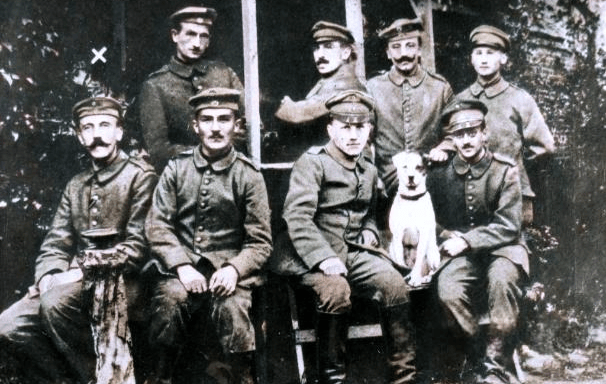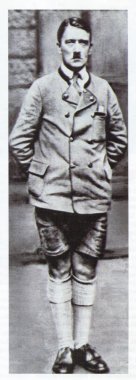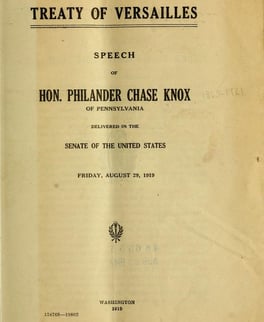The Role of World War I in Shaping Adolf Hitler's Ideology
Discover how World War I transformed Adolf Hitler from a struggling artist into a fervent nationalist and political ideologue. This detailed exploration uncovers how the war's battles, Germany's defeat, and the Treaty of Versailles fueled Hitler's anti-Semitic beliefs, militarism, and desire for vengeance. Learn how the experiences and ideologies forged during the Great War became the foundation for his rise to power and the devastating impact he had on world history.


The Role of World War I in Transforming Hitler's Ideology
World War I was one of the most cataclysmic events in modern history, reshaping nations, economies, and political ideologies. Among the countless individuals whose lives were irrevocably changed by the war, Adolf Hitler stands out as a figure whose worldview and political trajectory were profoundly shaped by the experience. For Hitler, the war served as both a crucible and a catalyst, forging the core tenets of his ideology that would later underpin the rise of Nazism and plunge the world into another devastating conflict.
The Pre-War Years: Hitler's Early Ideological Leanings
Before global battle I, Adolf Hitler led an unremarkable lifestyles. Born in Braunau am lodge, Austria, in 1889, Hitler aspired to come to be an artist but become rejected two times by way of the Vienna Academy of nice Arts.. His early years in Vienna exposed him to nationalist and anti-Semitic ideas prevalent in the city, but his ideological beliefs were not yet fully developed. Struggling with poverty and uncertainty, Hitler drifted aimlessly until the outbreak of World War I in 1914 gave his life newfound purpose.
World War I: A Turning Point in Hitler's Life
Enlistment and Service
When war broke out, Hitler, then living in Munich, enthusiastically enlisted in the Bavarian Army. He viewed the war as a chance to prove his loyalty to Germany and escape his otherwise directionless existence. Serving as a dispatch runner on the Western Front, Hitler participated in major battles such as the First Battle of Ypres and the Battle of the Somme. Despite the immense dangers, he demonstrated courage and dedication, earning the Iron Cross, First Class—a distinction that he wore with pride for the rest of his life.
For Hitler, the war was more than a series of military campaigns; it was a transformative experience that solidified his sense of identity and belonging. The camaraderie and shared purpose he found among his comrades contrasted starkly with the alienation he had felt in civilian life. This bond, however, also fueled his deepening resentment toward those he perceived as undermining Germany's war effort.
The "Stab-in-the-Back" Myth
The collapse of the German war effort in 1918 and the subsequent signing of the Treaty of Versailles had a profound impact on Hitler. Like many German soldiers, he struggled to accept the defeat, which he attributed not to military failure but to betrayal by internal enemies—particularly Jews, Marxists, and liberal politicians. This belief, later known as the "stab-in-the-back" myth, became a cornerstone of Hitler's ideology. He saw himself as a soldier continuing the war by other means, seeking to restore Germany's honor and punish those he deemed responsible for its humiliation.
The Impact of the Treaty of Versailles
The Treaty of Versailles, signed in 1919, imposed harsh consequences on Germany, along with territorial losses, disarmament, and reparations.. For Hitler, the treaty was a symbol of national humiliation and an embodiment of the betrayal he believed had occurred. The treaty's punitive measures created widespread resentment in Germany, which Hitler would later exploit to gain political support.
The economic hardships and social unrest caused by the treaty further radicalized Hitler's views. He saw the treaty not only as a personal affront but as evidence of a global conspiracy against Germany. This belief reinforced his anti-Semitic and anti-Marxist sentiments, which became central themes in his political propaganda.
The Development of Hitler's Ideology During the War
Nationalism and Militarism
World War I intensified Hitler's German nationalism. He became convinced that Germany's survival depended on unity, strength, and the elimination of perceived internal enemies. The war also reinforced his belief in the value of militarism and authoritarianism. Hitler saw the army as the ideal model for society, with its emphasis on discipline, hierarchy, and loyalty.
Anti-Semitism
While Hitler's anti-Semitic views were influenced by pre-war experiences in Vienna, they became more virulent during and after World War I. He blamed Jews for Germany's defeat and the economic turmoil that followed. Hitler's wartime experiences gave him a scapegoat for Germany's problems, and he began to see anti-Semitism as a unifying force that could rally Germans against a common enemy.
The Cult of the Leader
Hitler's wartime experiences also shaped his views on leadership. He admired the discipline and authority of military leaders and believed that Germany needed a strong, decisive leader to restore its greatness. This belief laid the groundwork for his own dictatorial ambitions.
Post-War Years: From Soldier to Politician
After the war, Hitler struggled to reintegrate into civilian life. Like many veterans, he felt alienated and disillusioned. However, his experiences during the war and his bitterness over Germany's defeat gave him a sense of mission. In 1919, he joined the German Workers' Party (DAP), a small nationalist and anti-Semitic group. Hitler quickly rose to prominence within the party, using his oratorical skills and ideological fervor to attract followers.
By using 1920, the DAP had converted into the country wide Socialist German workers' party (NSDAP), or Nazi party. Hitler's leadership and propaganda drew heavily on themes from his wartime experiences, including nationalism, anti-Semitism, and the rejection of the Treaty of Versailles. His ability to channel the frustrations of the German people into a cohesive political movement marked the beginning of his rise to power.
Legacy of World War I in Hitler's Ideology
Global battle i was the crucible in which Hitler's ideology changed into cast.. The war gave him a sense of purpose, shaped his beliefs, and provided a narrative of betrayal and redemption that resonated with millions of Germans. The trauma and upheaval of the war created fertile ground for radical ideologies, and Hitler's message of national revival and vengeance struck a chord with a population desperate for hope and direction.
While Hitler's ideology was shaped by many factors, World War I was arguably the most significant. It transformed him from a struggling artist into a fervent nationalist and set him on the path to becoming one of history's most infamous figures. The lessons of this period serve as a reminder of the dangers of unchecked resentment and the power of charismatic leadership to exploit societal grievances.
Conclusion
The role of World War I in transforming Adolf Hitler's ideology cannot be overstated. The war provided him with the experiences, grievances, and narratives that he would later use to justify his actions and rally support for his vision of a new Germany. Understanding this transformation is crucial not only for comprehending Hitler's rise to power but also for recognizing the broader implications of war and political extremism. As history continues to teach us, the seeds of future conflicts are often sown in the ashes of past ones.



